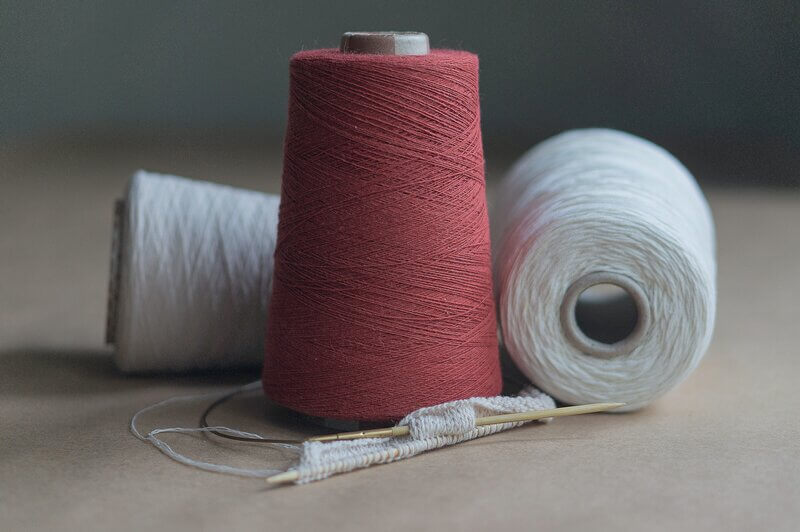Cotton yarn is a natural plant-based thread and one of the oldest textiles known to man. It is a prevalent choice in the knitting industry. This is due to the yarn being softer and more breathable than wool.
There are plenty of pros related to knitting with cotton. But there are also some cons you should be aware of. It’s essential to know how cotton thread feels and looks before you decide to knit with it. When you understand the benefits and pitfalls of knitting with cotton, you’ll have the tools to create soft, cool, and comfortable knits.
Either wool, cotton, or cotton/wool blends can be used for knitting fabrics. However, all three yarns hold different properties. And each should generally not be used as an alternative for the others. That said, you should only try cotton yarn with your knit when you’re aware of the techniques associated with this thread.
The Pros of Knitting with Cotton Yarn
Cotton yarn has been used for centuries to make clothes. This cellulose fibre is perfect for directing heat away from your body, thus keeping you cooler. The following are some of the pros of knitting with cotton yarn:
- Cotton yarn is much more breathable and comfortable to wear.
- The inelasticity of cotton yarn makes it an excellent choice for the classic drape effect. It settles naturally into a relaxed position, making it perfect for scarves, bags, or draped garments.
- It gives a great stitch definition to your woven cloth. Cotton allows every little detail of your knitted stitches to stand out beautifully.
- The cotton yarn makes a robust and natural fabric that can easily be washed and dried in the machine. In fact, it gets softer with every wash.
- This yarn makes an excellent water absorbent fabric. As a result, you could easily dye this fabric in a wide variety of colours, and it would hold the die well.
- It is rugged and durable yet comfortable to wear. The cotton yarn fibres do not break and tangle easily and can be used to knit heavy-duty projects.
- Cotton yarn is less expensive as compared to wool. However, the price slightly increases when you go for better quality and processed cotton.
- It is a plant-based yarn and is best for vegan people. Since most vegans do not prefer knitting with wool, as it is animal-based, cotton is the perfect choice for them.
The Cons of Knitting with Cotton
Knitting with cotton might not always be the best option. There are a few projects that may not work with cotton yarn. The following list represents the primary cons of knitting with cotton yarn:
- Pure cotton yarn is a natural fibre and, therefore, easy to crease and wrinkle. You need to take extra care of your fabric to keep it perfectly sheen.
- Cotton yarns can be challenging to knit with. These yarns are slippery, and using a metal needle might not be the best option.
- These yarns don’t have much elasticity making them even more challenging to weave. You might feel some strain on your hands while keeping an even tension during the knitting process.
- Cotton yarns are known for absorbing water and holding it well. However, this property can lead to stretching and sagging of the fabric when wet.
- These yarns are unable to hold dark blue, red, and black colours well. This might lead to paint bleeding and can destroy the whole knitted garment.
- Cotton plants are usually grown with many pesticides and fertilizers, making them harmful to the environment.
- Organic cotton yarn is more expensive and challenging to get as compared to conventional cotton.

Post time: Sep-19-2022
